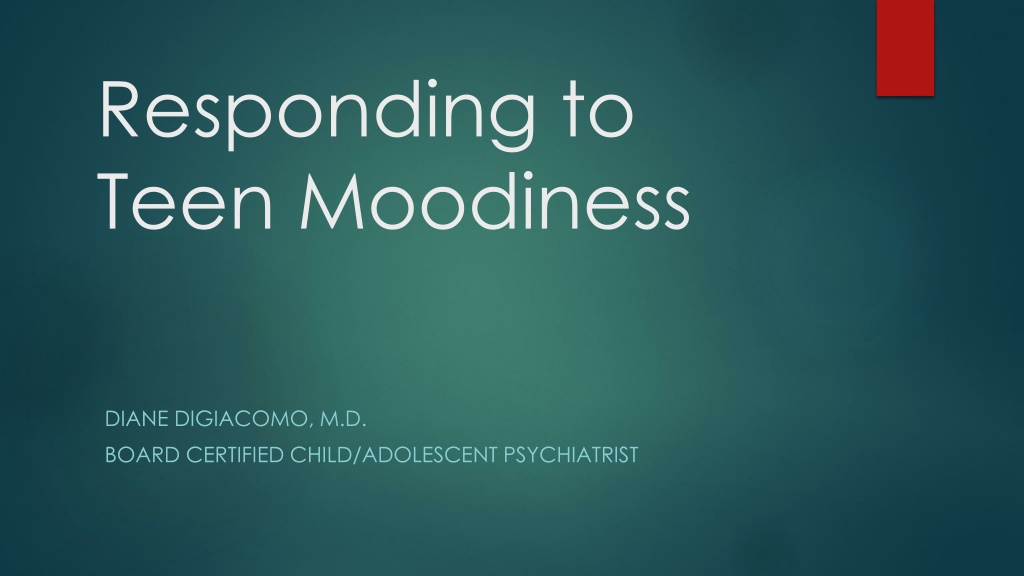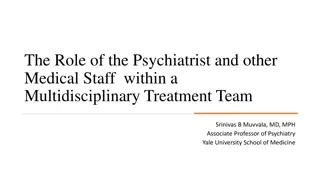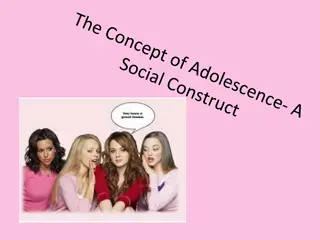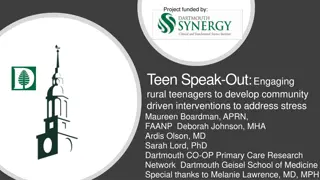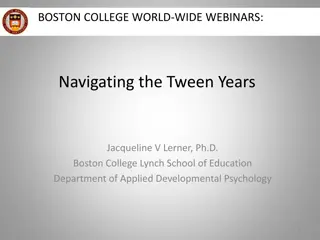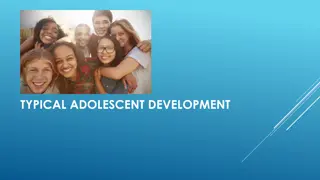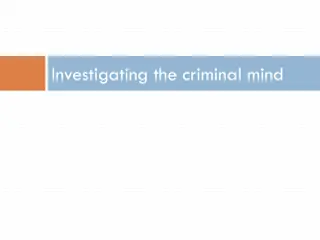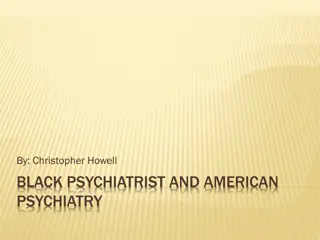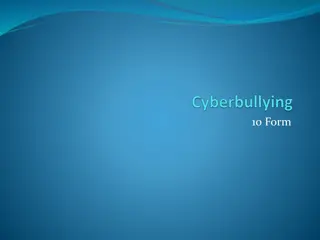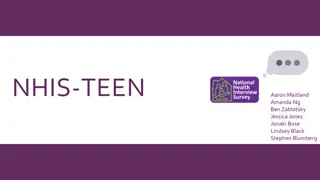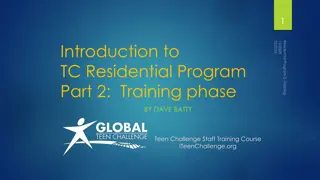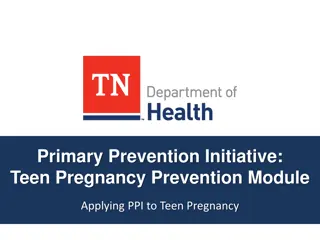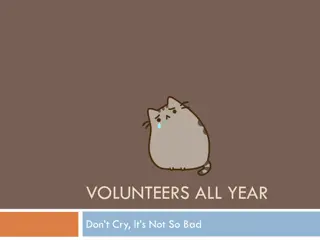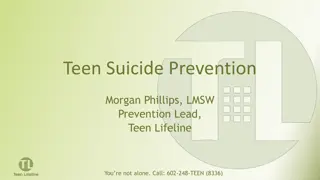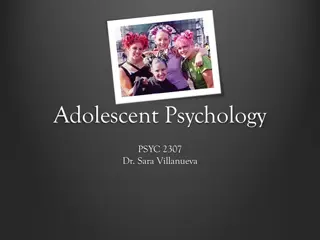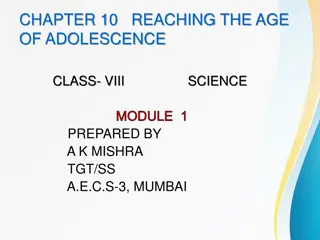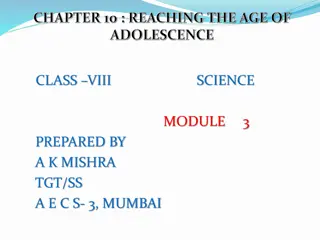Understanding Teen Moodiness: A Psychiatrist's Insight into Adolescence
Adolescence brings significant hormonal changes that impact teens' emotions and behaviors. This phase, characterized by mood swings and impulsive actions, is a natural part of development influenced by brain structure alterations and psychological adaptations. As adolescents navigate the journey of establishing their own identity separate from their parents, it's essential for caregivers to comprehend these biological and psychological dynamics to support teenagers effectively.
Download Presentation

Please find below an Image/Link to download the presentation.
The content on the website is provided AS IS for your information and personal use only. It may not be sold, licensed, or shared on other websites without obtaining consent from the author. Download presentation by click this link. If you encounter any issues during the download, it is possible that the publisher has removed the file from their server.
E N D
Presentation Transcript
Responding to Teen Moodiness DIANE DIGIACOMO, M.D. BOARD CERTIFIED CHILD/ADOLESCENT PSYCHIATRIST
Moodiness in Adolescence can be Normal Teens are known for their one word answers, eye rolls, talking back, sullen silences and slamming doors Your once sweet and affectionate child has entered puberty Puberty the period during which adolescents reach sexual maturity and become capable of reproduction Girls occurs earlier between ages 10-14 years Boys physical changes between 12-16 years
Hormone Effects in Puberty: Whatever!!! Estrogen, Testosterone Allopregnalone (THP) chemical that normally helps soothe and provides a calming effect during stress for adults/children, becomes an antagonist during puberty and increases anxiety in teens Psychological maturation influenced by neurosteroids which act on mood, anxiety, libido and other behavioral functions Puberty is a time when kids are more vulnerable to emotional and behavioral problems
Teen Brain Structure Changes Teen brain develops into the early 20s in young adults Prefrontal cortex increases connections between brain cells during puberty and white matter increases in the frontal and parietal lobes Thus reasoning, judgement, complex decision making are not fully formed yet and impulse control and emotional regulation are hot button issues Teen mood swings most volatile in early adolescence and then stabilize A Dutch study showed teen boys have decreased empathy ages 13-16
Why dont you grow up and act like an adult? Adolescents actions are guided more by the emotional and reactive amygdala, less by the thoughtful, logical frontal cortex They are more likely to: Act on impulse Misread social cues/emotions Get into accidents, fights, engage in dangerous or risky behavior (AACAP Facts for Families: Teen Brain: Behavior, Problem Solving, and Decision Making, September 2016)
Psychological Adaptations Need to establish own identity with beliefs, goals, values Separate from parents, become independent Seek privacy, distance, more defensive Less overt affection towards parents Erik Erikson adolescence (12-18) Identity vs Role confusion- adolescent must develop a sense of self When adolescents do not make a conscious search for identity or are pressured to conform to parent s ideas for future, they develop a weak sense of self and will need to find themselves as adults
Stress/ Pressures on Teens during Adolescence Bullying, Social media Gender and sexual orientation Substance use/abuse Family stressors divorce, economic changes, family discord School demands and frustrations Chronic illness Death of a family member Moving or changing schools Too many activities or too high expectations
Whats a parent to do ???? Recognize moodiness is common in teens Keep calm, Breathe, count You as an adult have the skills and developed brain to control your responses Talk to friends Listen and acknowledge your teen s feelings thereby creating a safe environment Set clear expectations, boundaries and rules without engaging in negative emotion cycles Promote open dialogue, don t shut out or punish Most importantly, don t take it personally or as a sign of disrespect
Balancing Act between Structure and Space Help your teen establish healthy sleep habits with limits on electronics Make time for breakfast and snacks Give them space Yet stay connected Help create more opportunities for positive experiences sports, volunteer, music, art, community Work with your teen to generate multiple possible solutions that they can own
Red Flags of Depression or other Psychiatric Disorders Appetite and sleep changes Withdrawal from friends and family Little interest in previously pleasurable activities Feelings of depression, sadness or irritability, tearfulness Feeling tired or having low energy Feelings of guilt or low self-worth Difficulty concentrating Suicidal thoughts or plans, self-harm, recurrent thoughts about death Failing grades, skipping classes Repeated threats to run away Signs and symptoms are present for 2 weeks or longer
Where to Obtain Help Speak with a medical professional pediatrician or family doctor Referrals from school counselor or other mental health professional Other sources of information: EAP, Local medical or psychiatric society, local mental health association, county mental health department, NAMI, AACAP, APA Need to schedule a comprehensive assessment to identify the right treatment Treatments may include psychotherapy, family therapy, cognitive behavioral therapy or dialectical behavior therapy, antidepressant medications
Resources (Page 1 of 2) Is your teen moody or depressed? Tips for Parents, ClevelandClinic.org Help your Teen s Mood Swings WebMD Positive Parenting Strategies for the Teenage years, www.mftonlineceus.com Your Teenager: Just Moody .Or Something More? www.name.org/Blogs/NAMI-Blog/February-2015/Your-Teenager- Just-moody-or-Something-More https://childmind.org/symptomchecker/ http://www.mentalhealthamerica.net/mental-health-screening- tools http://bitly/learnmh resources to start a conversation with your child about their mental health via Mental Health America
Resources (Page 2 of 2) American Academy of Child and Adolescent Psychiatry, aacap.org Facts for Families and Child and Adolescent Psychiatrist Finder National Alliance on Mental Illness 1-800-950-NAMI (6264) http://www.teenhealthandwellness.com/static/hotlines#Mentalhealt h https://mhfa.com.au/resources/mental-health-first-aid-guidelines National Suicide Prevention Lifeline 800-273-TALK (8255) Crisis Textline: Free, confidential 24 hour service accessible via text message to number 741-741. Statistics show only 5% of teens are willing to call phone crisis lines, but they re more willing to text anonymously with a crisis counselor. Or message at Facebook.com/CrisisTextLine Partnership for Drug-Free Kids, drugfree.org, Brain Development, Teen Behavior and Preventing Drug Use
